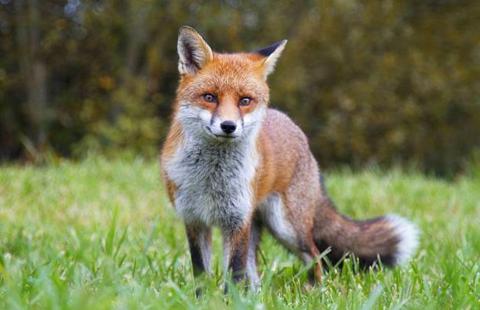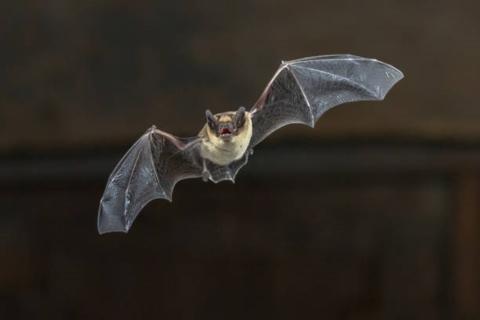What is rabies?
Rabies is an illness caused by the rabies virus. It affects the central nervous system of infected mammals, including humans.
Once symptoms appear, it is almost always fatal.
How is rabies spread?
Rabies is spread through the saliva of an infected animal.
Most often it is transmitted through a bite but can also be transmitted when saliva from the infected animal contacts a scratch, open wound, or the mucous membranes of the mouth, nose or eyes.
The virus travels to the brain through the nerves, where it multiplies and then enters the saliva from the salivary glands. Once it is in the saliva it can spread to others.
Rabies does not spread through petting a rabid animal or contact with a rabid animal’s blood, urine or feces.
In Canada, the animals that most often transmit rabies are bats, raccoons, skunks and foxes.
Small mammals are not likely to transmit rabies (e.g. rats, mice, gerbils, rabbits, squirrels, chipmunks, etc.).
Who is most at risk?
Children are high risk because they are more likely to play with animals, be bitten by animals and less likely to tell an adult if they’ve been bitten, scratched or licked.
Individuals who work or volunteer in areas where you are more likely to come into contact with potentially rabid animals or the rabies virus (veterinary staff, animal control officer, animal shelter or rescue workers, hunter, trapper, laboratory researcher or technician who works with the rabies virus, etc.).
Individuals who go spelunking or cave exploring or travel to countries/areas where rabies is widespread or there is limited access to adequate and safe rabies treatment.

Is there rabies in PEI?
To date, there have been no documented cases of rabies in humans in PEI.
Rabies activity in wildlife on PEI is very low; however, there have been animals that tested positive. Since reporting began in 1924, 6 animals have tested positive for rabies in PEI, most recently a bat in 2023.
For this reason, it is important to continue to take precautions and report animal bites.
How do I prevent rabies?
- Domesticated animals are the most important link between wildlife and humans. Talk with your veterinarian to ensure your pets and livestock are up to date on their rabies vaccinations. This protects them and your family.
- Keep your pets on a leash or in a well-lit fenced yard, especially at night when wildlife such as bats, foxes, raccoons and skunks are most active.
- Do not feed wildlife, unknown or stray animals.
- Do not handle wildlife, including injured or orphaned mammals, unless directed to do so by an authority.
- Keep away from sick or dead animals.
- Closely supervise children around animals.
Report an Injured or Dead Wild Animal
Report Abandoned or Lost Young Animals
Should my pet be vaccinated for rabies?
Yes, vaccinations are important to keep your pet safe and healthy. Contact your local veterinary clinic to discuss the appropriate vaccinations for your pet.
Bite Prevention - Cats and Dogs

